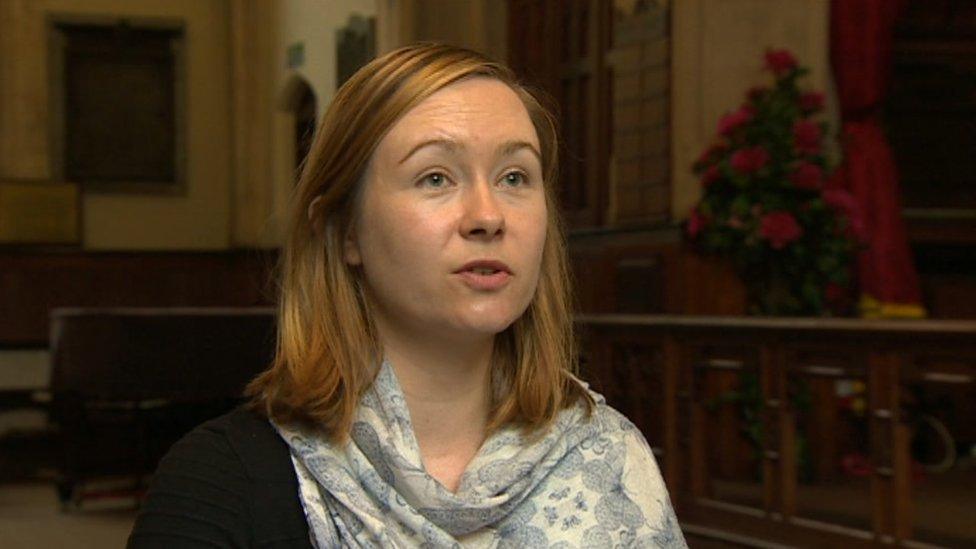Food wristbands scrapped for Cardiff asylum seekers
- Published

A firm providing meals for asylum seekers in Cardiff has dropped demands they wear wristbands as a condition for receiving food.
The coloured bands were given to asylum seekers staying at Lynx House.
But some said it was dehumanising and made people targets for abuse.
The Clearsprings Group, which runs the service, said wristbands were seen as a "reliable and effective way" to guarantee service delivery but, as of Monday, they would no longer be used.
First Minister Carwyn Jones said he was "appalled" by the wristbands.
The news came after asylum seekers in Middlesbrough said they were abused after their doors were painted red.
A company housing the asylum seekers later said it would repaint the doors after concerns people were being singled out as immigrants.

Officials for the Home Office told the BBC on Monday the Clearsprings Group would be scrapping the wristband scheme.
A spokesman said the "highest standards" were expected from contractors, including not endangering the safety of anyone in their care.
"If there is any evidence to suggest this is not the case, it will be treated with the utmost seriousness and dealt with accordingly," he added.
Eric Ngalle speaks to BBC Wales
The first minister tweeted:, external "I am appalled some asylum seekers in Cardiff have been asked to wear wristbands in order to access food.
"This is completely unacceptable and goes against everything we stand for as a nation."
Mr Jones said he would contact the Home Office to register "serious concerns".
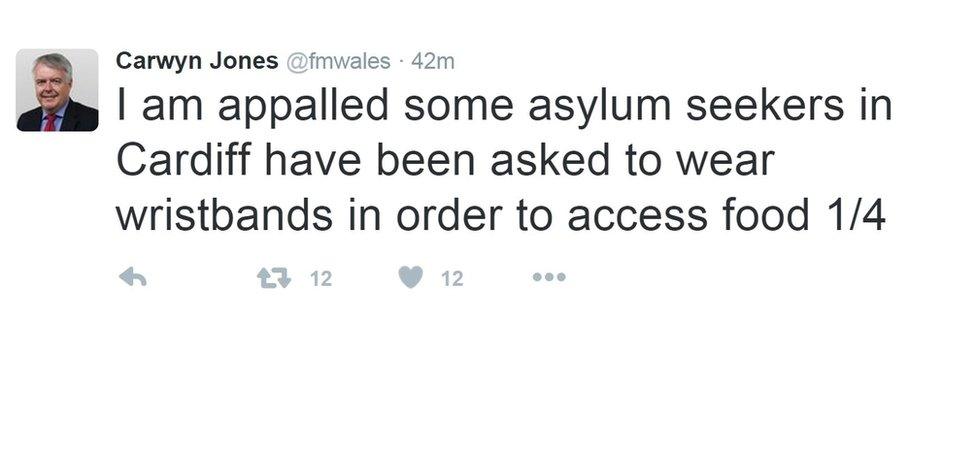
Refugee Eric Ngalle, 36, told BBC Wales he spent nearly two months at Lynx House and challenged the need to wear the wrist bands, but was unable to change the policy.
He said he was told it was a Home Office directive, but none of the asylum seekers believed this, and felt having to wear the wristbands was "labelling" and "stressful".
The wristbands cannot be removed without destroying or damaging them.

Chloe Marong, who works at the Trinity Centre in Cardiff which provides support for asylum seekers, said she thought the treatment was dehumanising and left people vulnerable to abuse.
Plaid Cymru leader Leanne Wood said the Home Office should face "serious questions" about the situation.
The leader of the Welsh Conservatives, Andrew RT Davies, added: "I find it very hard to understand how a system like this could ever be deemed appropriate and frankly I'm shocked and appalled."
However, Conservative MP for Monmouth, David Davies, described some comments as "OTT" (over the top) especially those suggesting the practice was like Jewish people being forced to wear yellow stars under the Nazi regime.
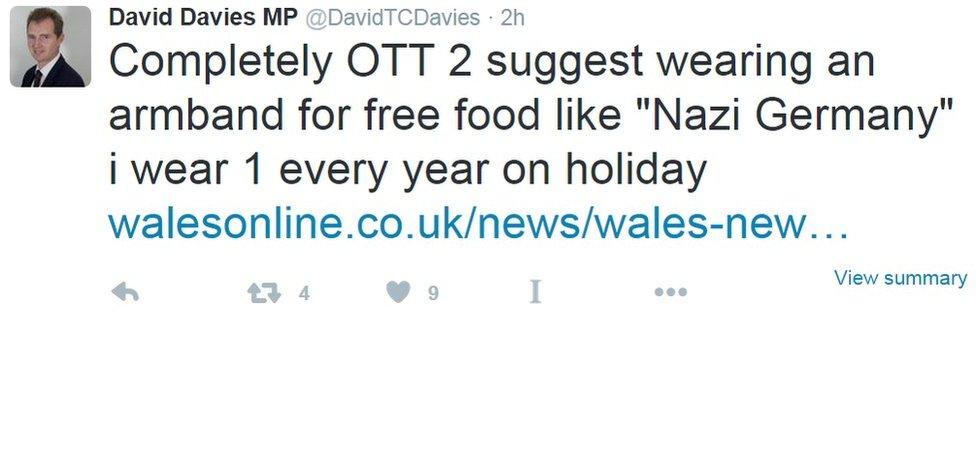
Clearsprings Ready Homes said asylum seekers who spent their initial few weeks in its full-board accommodation in Cardiff had been provided with bands since May 2015.
This was to "ensure they receive the services they are entitled to and to make sure those more vulnerable asylum seekers have access to their specific requirements".
"As in numerous such establishments where large numbers of people are being provided with services, wristbands are considered to be one of the most reliable and effective ways of guaranteeing delivery," a spokesman said.
"We are always reviewing the way we supply our services and have decided to cease the use of wristbands as of 25 January and will look for an alternative way of managing the fair provision of support."
- Published20 January 2016
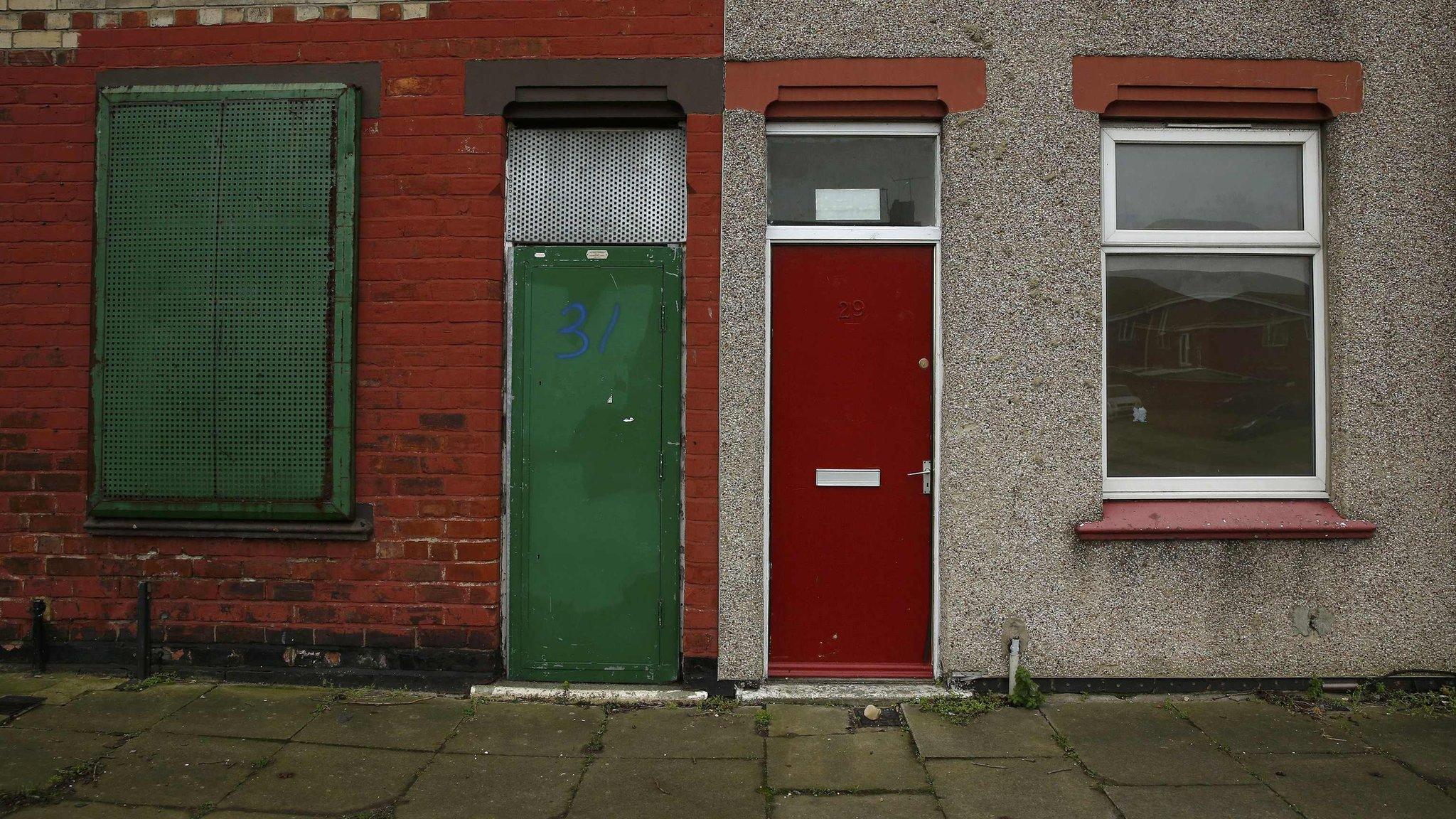
- Published19 November 2015
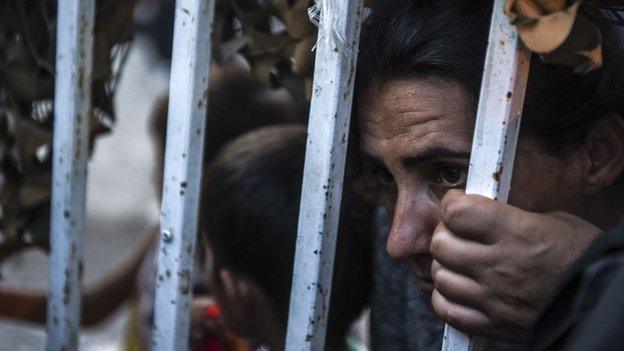
- Published15 October 2015
